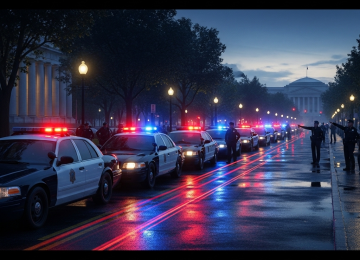5 Key Facts About Israel’s Killing of an Al Jazeera Journalist
The death of a prominent journalist in a conflict zone invariably sends shockwaves across the globe, raising critical questions about press freedom and accountability. The incident involving **Israel’s killing of an Al Jazeera journalist**, Shireen Abu Akleh, on May 11, 2022, is a case that continues to command international attention. Abu Akleh, a veteran Palestinian-American correspondent, was a household name in the Arab world, known for her decades of fearless reporting from the heart of the Israeli-Palestinian conflict. Her death during an Israeli military raid in the West Bank city of Jenin sparked outrage and led to multiple, often conflicting, investigations.
Understanding the complexities of this event requires a detailed look at the key facts, the subsequent investigations, and the broader implications for journalists working in high-risk environments. This article breaks down five essential aspects of the case, providing a comprehensive overview of the incident and its far-reaching consequences. From her distinguished career to the contentious findings of various investigative bodies, these points illuminate why this story remains a focal point for human rights organizations and news agencies worldwide.
Who Was Shireen Abu Akleh?
Shireen Abu Akleh was not just any journalist; she was an icon of Middle Eastern journalism. Born in Jerusalem in 1971, she was a Palestinian-American who dedicated her life to telling the stories of her people. After graduating from Yarmouk University in Jordan, she began her career in media, eventually joining the then-fledgling Al Jazeera network in 1997. For over 25 years, she was one of its most recognizable faces, reporting on the ground from the Palestinian territories.
Her calm and professional demeanor, even in the midst of chaos, earned her immense respect from viewers and colleagues alike. She covered major events, including the Second Intifada, the Gaza Wars, and the day-to-day realities of life under occupation. Abu Akleh was known for her ability to provide a human face to the conflict, focusing on the personal stories that were often lost in political rhetoric. She was a mentor to many young journalists and a symbol of resilience. Her death was not only the loss of a reporter but the silencing of a voice that had chronicled the history of a generation.

The Incident: What Happened in Jenin?
On the morning of May 11, 2022, Shireen Abu Akleh traveled to the Jenin refugee camp in the occupied West Bank to report on a raid by the Israel Defense Forces (IDF). She was with a group of other journalists, including her producer Ali al-Samoudi, who was also wounded in the incident. Critically, Abu Akleh was wearing a blue flak jacket clearly marked with the word “PRESS” and a protective helmet. Eyewitnesses, including other journalists present, stated that the area was relatively quiet and there was no active fighting or crossfire between Israeli soldiers and Palestinian militants at the moment she was shot.
According to these accounts, a single shot struck Abu Akleh in the head in an area just below her helmet. She was rushed to a nearby hospital but was pronounced dead shortly after arrival. Al Jazeera immediately accused Israeli forces of deliberately targeting and assassinating their correspondent. The Israeli government initially suggested she might have been killed by indiscriminate Palestinian gunfire, a claim that was quickly and fiercely contested by eyewitnesses and the Palestinian Authority. The location of her death and the nature of her wound became central points of contention in the investigations that followed. For a deeper understanding of regional dynamics, see our analysis on Middle East tensions explained.
The Aftermath: Investigations into Israel’s Killing of an Al Jazeera Journalist
The investigation into **Israel’s killing of an Al Jazeera journalist** was fraught with political tension and conflicting narratives from the outset. Multiple entities conducted separate probes, leading to different conclusions.
* **Palestinian Authority Investigation:** The PA refused to hand over the bullet that killed Abu Akleh to Israeli authorities, citing a lack of trust. Their own investigation concluded that she was intentionally targeted by an Israeli soldier.
* **Israeli Military Investigation:** After initially blaming Palestinian gunmen, the IDF conducted its own analysis. In September 2022, Israel admitted there was a “high possibility” that Abu Akleh was “accidentally hit” by IDF fire. However, they maintained that the shot was fired during a gun battle with Palestinian militants and announced that no criminal charges would be filed against any soldiers involved.
* **Independent and Media Investigations:** Several respected news organizations, including CNN, the Associated Press, and The New York Times, conducted their own forensic and eyewitness-based investigations. These probes largely corroborated the eyewitness accounts, concluding that the shot likely came from an Israeli position and that there were no militants near Abu Akleh when she was killed.
* **United Nations Investigation:** The UN Human Rights Office (OHCHR) also concluded that Israeli forces were responsible for the shooting. Their independent monitoring found that the shots that killed Abu Akleh and injured her colleague came from Israeli Security Forces and not from indiscriminate firing by armed Palestinians.

International Reaction and Calls for Accountability
The killing prompted widespread international condemnation. The United States, where Abu Akleh held citizenship, called for a “thorough and transparent” investigation. The U.S. Security Coordinator for Israel and the Palestinian Authority (USSC) reviewed both the Israeli and Palestinian investigations and concluded that gunfire from IDF positions was “likely responsible” for her death, but found “no reason to believe that this was intentional.” This conclusion was criticized by Abu Akleh’s family and Palestinian officials as an attempt to shield Israel from accountability.
Global press freedom organizations, including the Committee to Protect Journalists (CPJ) and Reporters Without Borders (RSF), demanded an independent, international probe and called for justice. As reported by major outlets like Reuters, the case has been submitted to the International Criminal Court (ICC) by Al Jazeera and the Palestinian Authority, accusing Israel of a war crime. The funeral procession for Abu Akleh in Jerusalem was also a scene of chaos, as Israeli police were filmed beating pallbearers, causing them to nearly drop the casket—an image that further fueled global outrage.
The Lasting Impact on Journalism and Press Freedom
The killing of Shireen Abu Akleh has had a chilling effect on journalists, particularly those covering the Israeli-Palestinian conflict. The incident underscores the extreme dangers faced by media professionals in conflict zones, even when they are clearly identified as press. The failure to hold anyone criminally responsible has been cited by advocacy groups as a symptom of a broader culture of impunity that endangers reporters. Her death serves as a stark reminder that the blue press vest does not guarantee safety. The case continues to be a rallying cry for stronger protections for journalists and for holding military forces accountable when they harm members of the media. The legacy of Shireen Abu Akleh is not just in her body of work, but in the ongoing global fight for press freedom and justice in her name.














